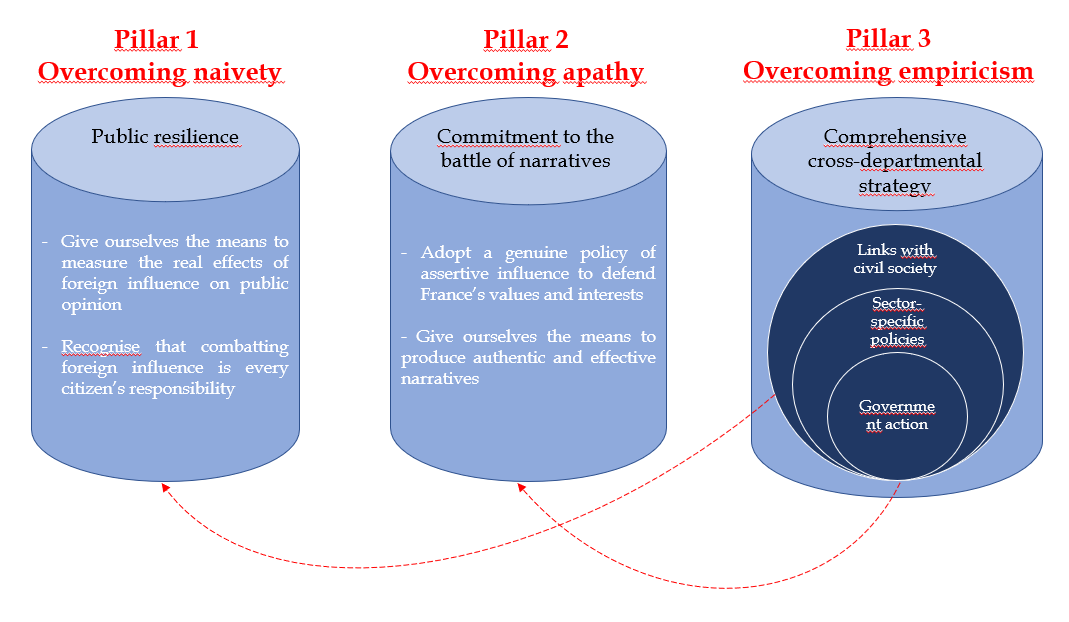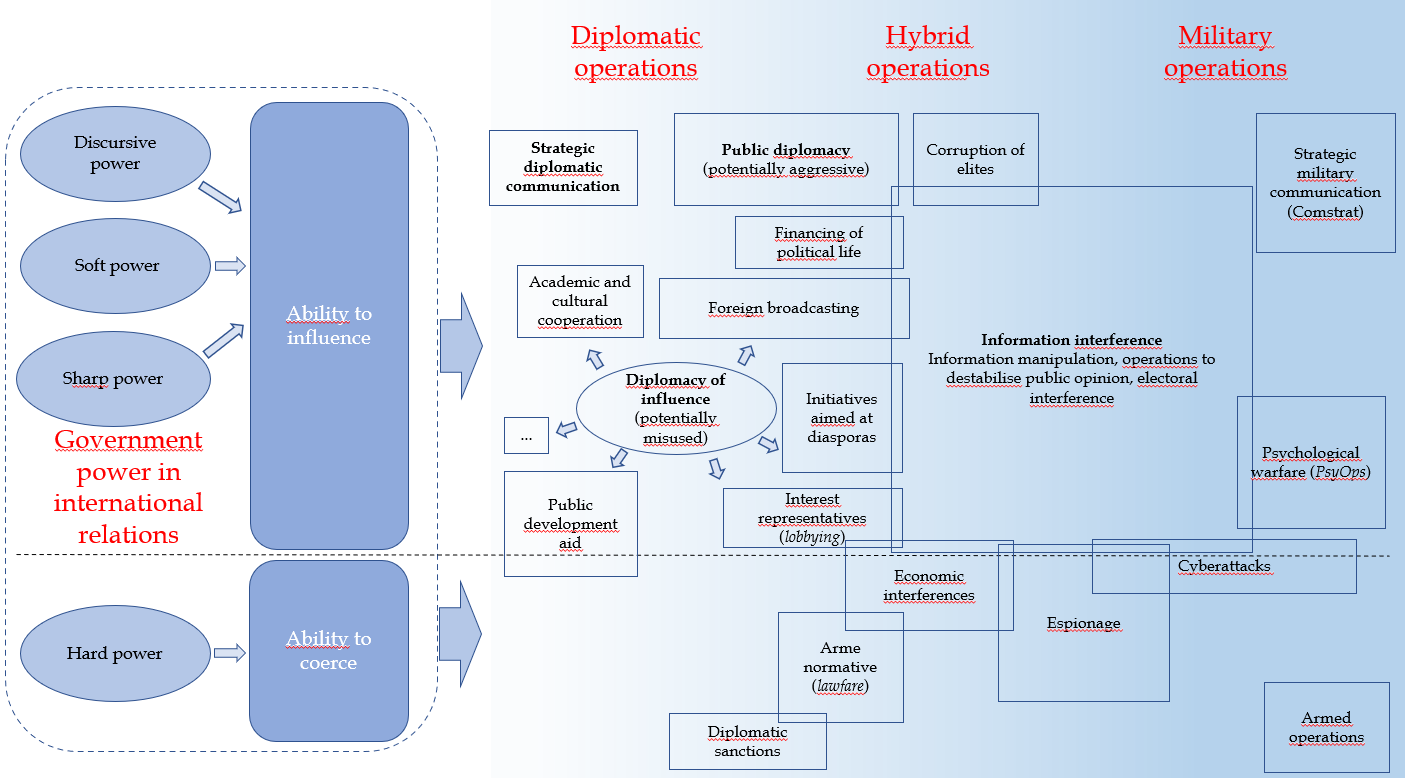APPENDIX ENGLISH
SUMMARY :
COMBATING MALIGN FOREIGN INFLUENCES : MOBILISING THE
WHOLE NATION AGAINST THE NEW COLD WAR
|
Created on the initiative of the Socialist, Ecologist and Republican (SER) group, the Committee of Inquiry into Official Policy on Foreign Influence Operations, chaired by Dominique de Legge (Les Républicains - Ille-et-Vilaine), adopted the report presented by Rachid Temal (SER - Val-d'Oise) on 23 July 2024. |
The Committee in figures ? 23 Senators representing all the political groups in the Senate ? 6 months of work, 46 hearings and 6 trips in France and abroad (Brussels, Taiwan, Helsinki, Tallinn) ? 120 people interviewed: 5 ministers, government agencies, social media companies (Meta, Google, X, TikTok), journalists, researchers, media and AI experts |
In favour of an official policy to combat malign
foreign influences,
underpinned by three pillars
? A three-pillar official policy: building resilience among the population; winning the battle of narratives; building a comprehensive cross-departmental strategy for the entire nation.
? A roadmap of 47 recommendations to be implemented in various sectors to counter foreign digital influences more effectively in France and develop France's positive influence abroad.
The three pillars underpinning a new collective
approach to
combating malign foreign influences
Source: Committee of Inquiry
I. MAIN FINDINGS
A. MALIGN FOREIGN INFLUENCES AT THE ROOT OF NEW HYBRID THREATS
The threat to France's democratic model and interests is no longer limited to conventional warfare or “traditional” interference, such as espionage or treason.
It was around the concept of malign foreign influence that the Committee of Inquiry focused its work. This concept differs from the more commonly used term “interference”, which describes a means rather than an end, and is also narrower than the term “influence”, which, when transparent, is part of the normal interplay of international relations. Malign foreign influence is comparable to hybrid attacks (information manipulation, foreign digital interference, etc.), which are far more serious as they do not respect physical borders.
Typology of foreign influences and distinction from coercive operations
Source: Committee of Inquiry
B. FRANCE FACED WITH A HARDENING OF INFLUENCE STRATEGIES
The increasingly uninhibited use of strategies of malign influence against France is part of a wider international context marked by:
· a new geopolitical order, with a return to power strategies and an increase in hybrid operations being conducted below the threshold of conventional warfare.
· a new technological environment, characterised by the centrality of digital platforms and the growing power of artificial intelligence, which are creating new channels through which people perceive information.
A number of competitors are engaged in a war of influence against Western countries and France in particular. Alongside Russia - by far the most aggressive state, even before it invaded Ukraine - and China, who are trying to promote their authoritarian model by undermining democracy, threats are coming from a whole range of emerging state competitors, such as Turkey and Azerbaijan.
In their war of influence against France, our adversaries are exploiting some of our vulnerabilities. These result from the all too real fractures in French society, the disarmament of the State in certain sectors and the fragility of the individual and the cognitive biases to which that person may fall victim. More importantly, these operations can paradoxically benefit from our liberal democratic model, with its open information space, which sets us apart from authoritarian regimes that muzzle public opinion.
These operations mainly involve the manipulation of information. The blue Stars of David spray-painted on several buildings in Paris in the days following the Hamas attack on 7 October 2023 is a good example. This destabilisation operation exploited a source of high political tension, bore the signature of the Russian secret services, and was artificially amplified on social media. However, the range of operations identified is much broader and includes capturing elites, controlling diasporas and exerting economic influence.
These attacks present us with an existential challenge, that of not falling into the trap set for us and therefore refusing, in our defence and in our response, to give in when it comes to our democratic principles and values.









